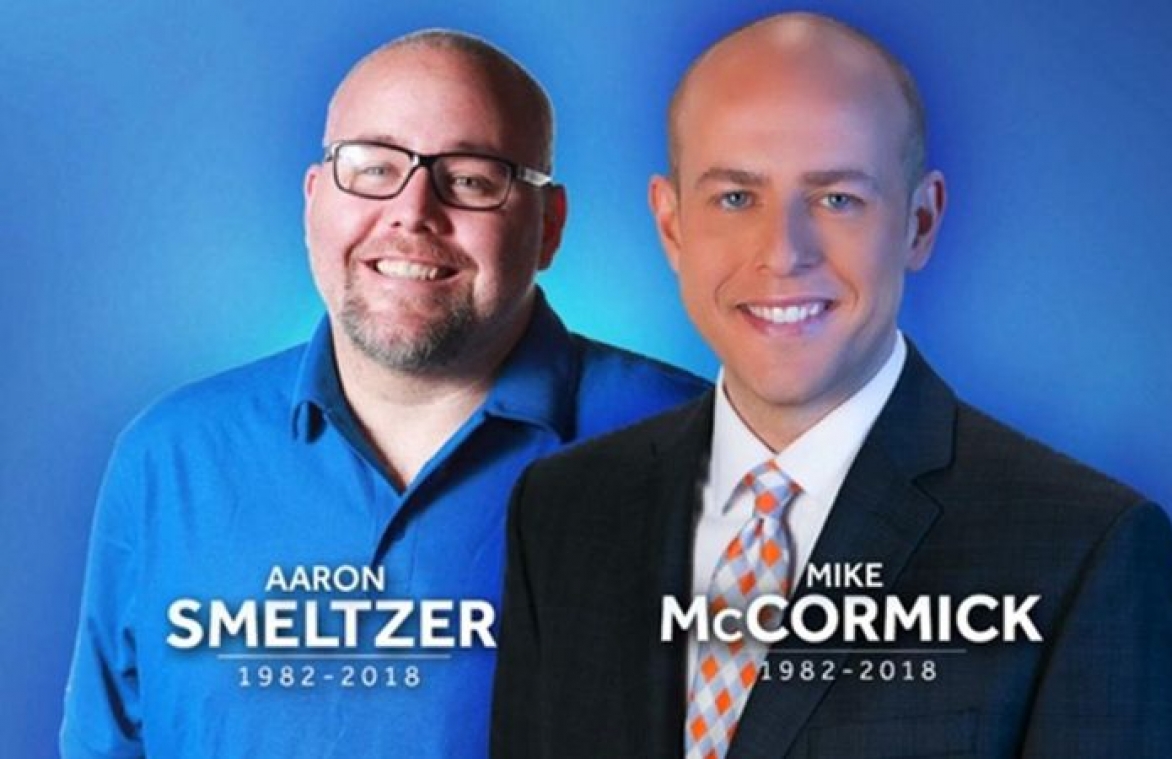The reports came like thunderbolts this week: Another journalist beaten to death in Mexico. Two journalists killed in the United States while reporting on a dangerous storm. And a Russian journalist assassinated in Ukraine.
An ongoing outrage. A terrible tragedy. And — as it developed in Kiev — a puzzling farce.
The body of Hector Gonzalez Antonio, a correspondent for national daily newspaper Excelsior, was found in Ciudad Victoria, in the northeastern state of Tamaulipas, the sixth journalist killed in the country this year and the second found beaten to death in the last two weeks.
At least nine journalists were murdered in Mexico in 2017, according to the international group Committee to Protect Journalists.
Antonio, a veteran reporter, often wrote about politics and the violence rampant in his home state, reports said. Mexico has become one of the most dangerous places in the world for those reporting the news. Drug cartels, political corruption and organized crime have created an environment of near-constant threats, attacks and killings.
In the United States, on Monday, WYFF anchor Mike McCormick and photojournalist Aaron Smeltzer were killed when a tree fell on their vehicle as they were covering flooding and damage associated with Tropical Storm Alberto in North Carolina.
Just 10 minutes earlier, the local fire chief Geoffrey Tennant had been interviewed by McCormick, and they talked about how “he wanted us to stay safe and how we wanted him to stay safe.” Early reports said the tree likely hit the SUV and crashed through the roof as it was moving — the engine was running and the vehicle was in drive when emergency crews reached the scene.
McCormick and Smeltzer were the first U.S. journalists to die in this country since August 2015, when Alison Parker and Adam Ward of WDBJ in Roanoke, Va., were killed by a deranged former colleague during a live morning broadcast.
The first news from Ukraine was that Russian journalist Arkady Babchenko, a long-time critic of the Kremlin, had been shot dead in his apartment in Kiev, where he has been working as a TV news anchor. International press freedom groups joined Ukrainian journalists and Babchenko’s colleagues to demand quick action to solve the murder — only to see him show up alive at a news conference Wednesday, where authorities revealed that the death was faked to foil an assassination plot.
Babchenko apologized to fellow journalists and to his wife, who he said did not know about the deception. Shortly after the shocking revelation, a Ukrainian journalist was quoted in news reports as saying that while he and others were relieved that their colleague had not been killed, “We’d also like to punch him in the nose.”
Like many journalists at that news conference did, it’s okay to celebrate — for a moment — that the assassination plot was foiled, and two conspirators arrested. But after that moment, let’s consider the long-term harm done by the fabricated murder.
The movie-ready drama in Kiev distracted the world’s attention from Hector Gonzalez Antonio’s horrific death — and from the ongoing horror facing journalists in Mexico. And it overwhelmed the news of the deaths of McCormick and Smeltzer, who died while working in dangerous conditions, as journalists often do, to report on natural disasters and alert us of storm threats.
In an era when too many of us doubt the accuracy — and the motives — of journalists, purposely generating fake news, even with the best of motives, seems unwise. If reports are accurate that Ukrainian police knew of the death plot against Babchenko for months, and perhaps even recruited the “hit man” in the sting, surely alternatives to deceiving the world were available.
Already, Kremlin officials are using the incident in attempts to discredit earlier reports about nefarious Russian activity in Ukraine and elsewhere, including calling “fake news” the reported attempt earlier this year to poison another critic of Russian President Vladimir Putin in Great Britain, and reports that Russia supplied the missile used to shoot down a Malaysia Airlines flight in eastern Ukraine in 2014.
Yes, it may seem disingenuous to decry both the murders of journalists and the efforts to prevent one — but, put simply, journalists cannot do their jobs and be de facto police officers at the same time. Sources need to trust that reporters are not working with the authorities — particularly in nations without strong protections for press freedom. News consumers need to trust that journalists are not simply another vehicle for government propaganda. And any deception offers “proof” to those who already see conspiracies, bias and political interference behind reports that challenge preconceived notions or the claims of those in power.
On Monday, June 4, the Newseum will hold the annual rededication of its Journalists Memorial, adding the names of 18 journalists who died in 2017, who will represent all journalists who died last year while gathering and reporting the news. It’s an annual reminder of the risks journalists take in simply doing their jobs.
The world should celebrate that Arkady Babchenko is alive. It’s just too tragic that we cannot say the same of Mike McCormick, Aaron Smeltzer and Hector Gonzalez Antonio — and the many others whose deaths are all too real.
Gene Policinski is president and chief operating officer of the Freedom Forum Institute. He can be reached at gpolicinski@freedomforum.org, or follow him on Twitter at @genefac.

